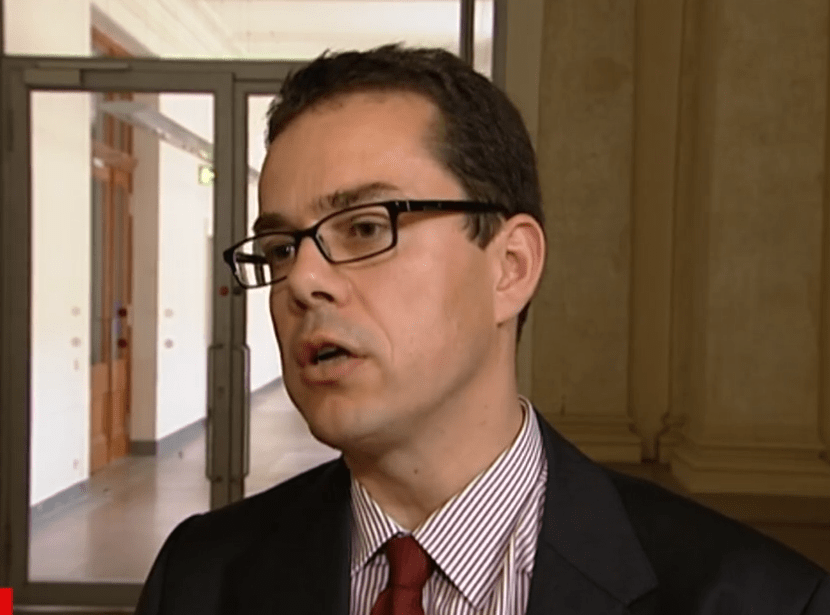Berliners have been in mourning for a man whose influence was deeply ingrained in the city’s everyday rhythm for the past few weeks. His name might not have been on bestseller lists or red carpets, but it was certainly felt. Just days before his 59th birthday, Peter Buchner, the long-serving CEO of Berlin’s S-Bahn, died after a quiet but valiant fight with cancer. His passing was profoundly felt by many, including those working in transportation and the many commuters who depended on his leadership inadvertently on a daily basis.

As a discreet nod, the normally vibrant green and white company website went monochromatic. This subtle but striking visual clue indicated that a man who was always close to the operations he oversaw was not there. Peter Buchner was more than simply a faceless executive; he really rode the trains he oversaw. The demands of both passengers and people were efficiently met by his grounded, practical, and non-performative leadership style.
Peter Buchner – Personal and Professional Profile
| Category | Details |
|---|---|
| Full Name | Peter Buchner |
| Date of Birth | 1965 (exact date undisclosed) |
| Date of Death | 2024 (shortly before his 59th birthday) |
| Age at Death | 58 |
| Cause of Death | Cancer (exact type undisclosed, for privacy) |
| Nationality | German |
| Occupation | CEO of Berlin S-Bahn |
| Major Role | Chairman of Berlin S-Bahn Management (2009–2024) |
| Academic Background | Degree in Business Administration |
| Previous Positions | Usedom Island Railway, DB Regio, Busverkehr Oder-Spree GmbH |
| Key Contributions | Crisis recovery, modernization, public trust restoration |
| Reference |
According to everyone, he kept his sickness a secret from the public and the media out of respect for his family’s wishes. However, Buchner’s commitment to his role persisted even while he battled cancer, according to people close to him. He persisted in keeping an eye on operations, was involved in making strategic decisions, and was not one to step back. This unwavering commitment was not an act; rather, it mirrored an ingrained feeling of responsibility that had molded his profession from the start.
When the Berlin S-Bahn was at its worst in 2009, Buchner took over as CEO. Technical issues, unhappy customers, and a deteriorating reputation were the service’s downfall. Many would have been discouraged from taking command in such a setting. Yet, Buchner established a noticeably different tone by consistently making decisions, listening to operational staff, and re-establishing trust with commuters. He successfully changed the company’s culture while keeping morale up by viewing problems in a new light.
His decision to continue taking the S-Bahn every day was both an early and meaningful one. This wasn’t merely for show. His coworkers saw that he would often strike up talks with customers and staff while riding these trips, allowing him to watch service in action. It was a profoundly significant act that restored public faith and prompted internal accountability. He embodied the power of proximity to move leadership beyond abstraction and into concrete care by simply being there on the train lines.
The S-Bahn in Berlin has been both stabilized and updated thanks to Buchner’s tactics implemented over the last decade. Delays were drastically cut, digital interfaces were modernized, and staff morale was much enhanced under his leadership. His vision for the future was very clear: dependable service, open and honest communication, and complete openness. These guidelines proved that a system tarnished by a crisis could once again become an asset to the community, and they helped shift public opinion.
Considering the prevalence of formality and hierarchy in his field, his approach to leadership was groundbreaking. By promoting an environment of transparency, Buchner helped break down barriers between previously isolated departments, allowing for the free flow of ideas and criticism. A more nimble and responsive business was born from his efforts to combine personnel knowledge with data-driven decision-making. Although his approaches were unassuming, they unquestionably brought about significant change.
His roles built up to the one that would define him throughout his career. From operating the Usedom Island Railway in 1994 to leading regional operations at DB Regio, he gradually gained experience across finance, logistics, and human resource management. From 2001 to 2010, he was the head of Busverkehr Oder-Spree GmbH, a regional transit company that he oversaw. Because of his multi-faceted background, he is highly adaptable and can respond calmly and decisively to any situation that may arise.
Tributes began pouring in after his passing. With “a void that cannot be described in words,” Deutsche Bahn’s Harmen van Zijderveld characterized Buchner’s absence. A legacy beyond operational excellence was signaled by the sentiment, which was mirrored throughout public and private sectors. Even after he passed away, his legacy would guide Berlin’s infrastructure as a symbol of service-focused leadership.
There is a striking contrast between Buchner’s experience and current leadership trends. Throughout his career, he advocated for reliability and trustworthiness, in contrast to the tendency for corporate culture to promote rapidity and disruption. Instead of promising overnight revolutionary transformation, he promised steady progress, one schedule at a time. He stood out—in a good way—because of his constancy and his relational approach.
The loss of Buchner also highlights the personal toll that public service takes. Without the glitz and glamour that other industries may offer, leaders like him often find themselves negotiating intricate systems. Despite this, their legacies last a very long time. People like him—dedicated, careful, and quietly effective—make judgments that lead to on-time trains, resolved complaints, and technological upgrades.
